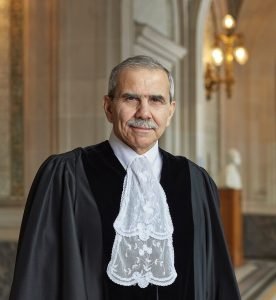FOOD
הָא לַחְמָא עַנְיָא דִּי אֲכָֽלוּ אַבְהָתָֽנָא בְּאַרְעָא דְמִצְרָֽיִם. כָּל דִּכְפִין יֵיתֵי וְיֵכוֹל, כָּל דִּצְרִיךְ יֵיתֵי וְיִפְסַח. הָשַּׁתָּא הָכָא, לְשָׁנָה הַבָּאָה בְּאַרְעָא דְיִשְׂרָאֵל. הָשַּׁתָּא עַבְדֵי, לְשָׁנָה הַבָּאָה בְּנֵי חוֹרִין:
This is the bread of affliction that our ancestors ate in the land of Egypt. All who are hungry let them come and eat, all that are in need let them join our Passover celebration. Now we are here, next year in the land of Israel. Now we are slaves, next year we will be free.
Is Food a Human Right?
Access to food, along with health care, may be considered a human right. After all, there is little sense in governments guaranteeing their citizens political and social freedoms if at the same time those citizens lack basic health and sustenance. Food is such a basic human need it makes sense everyone should have a right to acquire it.
There are reasons, though, why food might not be a right. It’s difficult to define a minimum standard of what food (let alone healthcare) people should have a right to. Limited resources may make guaranteeing this right (healthcare in particular) impossible, and creating a healthy society may require spending money on other things (for example, art and culture) that also enrich the public. A right to food and medicine may absolve citizens of personal responsibility for maintaining their own health and working to support themselves. In this view providing food and health care for others is an act of charity, but not something those in need have a right to.
Political and economic rights may also conflict. In the mid- 20th century, as the Universal Declaration of Human Rights was being drafted, communist countries argued that economic rights are most important. Governments might need to limit citizens’ abilities to choose their profession, strike, or demonstrate in order to guarantee universal employment and healthcare. Western countries have often considered political rights most important. But if people are allowed such extensive freedoms, can society be expected to insure everyone’s health and support?
U.S. vs Universal Declaration of Human Rights
The United States pursues policies that promote access to food, and it is our objective to achieve a world where everyone has adequate access to food, but we do not treat the right to food as an enforceable obligation. (U.S. Explanation of Vote on the Right to Food).
Everyone has the right to a standard of living adequate for the health and well-being of himself and of his family, including food, clothing, housing and medical care and necessary social services, and the right to security in the event of unemployment, sickness, disability, widowhood, old age or other lack of livelihood in circumstances beyond his control.
Additional Reading
An arguement as to why food should be considered a human right, in light of the fact that plenty of calories are produced to feed the world’s population but many still go hungry. From the Nation.
A clear argument as to why food should not be considered a human right. Availability of food depends on economic conditions, so this right would have to change in keeping with availability. The right to food would also inevitably conflcit with other rights, and when we are forced to choose between basic rights too often they will all be lost.
An examination of what is required of governments if food is considered a human right. From the Food and Agriculture Organization of the United Nations.
Human Rights Haggadah Blog

The Real Human Rights Violation Is Not Offering Gazans a Choice
By now most of us are familiar with Trump’s stunning comments about relocating the current population from Gaza and rebuilding it as ‘The Riviera

Condemn Israel, Starve Miners: South Africa Makes a Mockery of Human Rights
According to the Talmud, Rabban Gamliel banned from the study hall any student whose deeds were not in keeping with their values (Brachot 28a). This

Hostage Agreement Says Human Rights Are Dirt
While I of course share in the joy at the return of the first three hostages, I’m also saddened because the agreement that freed them

Judge Rules Against Israel One Day, Becomes Prime Minister of Lebanon the Next
Of course the ceasefire deal is the main topic currently in the news, but the abrupt resignation of ICJ President Nawaf Salam to become Prime

